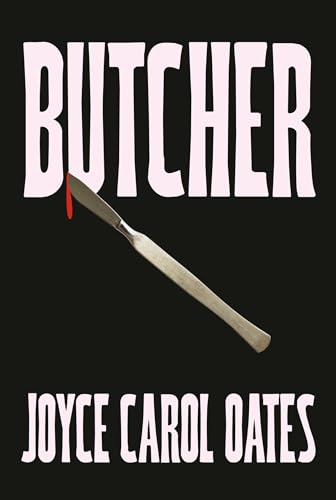What do you think?
Rate this book


353 pages, Kindle Edition
First published May 21, 2024
It's true, most of my surgeries were performed without anaesthesia, for the practical reason that, in the early years of my Directorship, anaesthesia was scarcely known. Also, it is scientific fact, as I have explained to Brigit, that female organs have fewer nerve endings than other parts of the body, no doubt to make the rigours of childbirth less painful.
I was likely the sole surgeon in New Jersey trained to treat vaginismus, at the request of frustrated husbands, who brought me their hysterically 'frigid' wives, to undergo a delicate surgery widening the mouth of the vagina, while at the same time severing nerves in the surrounding flesh, to kill sensation; this, often combined with a clitorectomy of which the wife was unaware.
❝ 𝐈𝐭 𝐢𝐬 𝐭𝐫𝐮𝐞, 𝐈 𝐨𝐰𝐞 𝐦𝐲 𝐥𝐢𝐟𝐞 𝐭𝐨 𝐒𝐢𝐥𝐚𝐬 𝐀𝐥𝐨𝐲𝐬𝐢𝐮𝐬 𝐖𝐞𝐢𝐫. 𝐈𝐭 𝐢𝐬 𝐚𝐥𝐬𝐨 𝐭𝐫𝐮𝐞, 𝐒𝐢𝐥𝐚𝐬 𝐀𝐥𝐨𝐲𝐬𝐢𝐮𝐬 𝐖𝐞𝐢𝐫 𝐰𝐚𝐬 𝐚 𝐛𝐮𝐭𝐜𝐡𝐞𝐫 𝐨𝐟 𝐠𝐢𝐫𝐥𝐬 & 𝐰𝐨𝐦𝐞𝐧. ❞
*ᴀʟʟ ᴛʜᴇ ᴛʀɪɢɢᴇʀ ᴡᴀʀɴɪɴɢꜱ
❝ 𝐎𝐮𝐫 𝐟𝐚𝐭𝐞𝐬 𝐰𝐞𝐫𝐞 𝐝𝐞𝐜𝐢𝐝𝐞𝐝 𝐛𝐲 𝐨𝐮𝐫 𝐡𝐮𝐬𝐛𝐚𝐧𝐝𝐬 & 𝐟𝐚𝐭𝐡𝐞𝐫𝐬.
𝐎𝐮𝐫 𝐟𝐚𝐭𝐞𝐬 𝐰𝐞𝐫𝐞 𝐝𝐞𝐜𝐢𝐝𝐞𝐝 𝐛𝐲 𝐡𝐚𝐧𝐝𝐬𝐡𝐚𝐤𝐞𝐬. ❞
❝𝐖𝐡𝐞𝐧 𝐭𝐡𝐞 𝐝𝐢𝐞 𝐢𝐬 𝐜𝐚𝐬𝐭,
𝐰𝐞 𝐬𝐭𝐚𝐧𝐝 𝐰𝐢𝐭𝐡 𝐨𝐮𝐫 𝐬𝐢𝐬𝐭𝐞𝐫𝐬 𝐭𝐨 𝐭𝐡𝐞 𝐝𝐞𝐚𝐭𝐡.❞